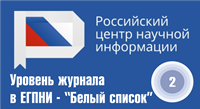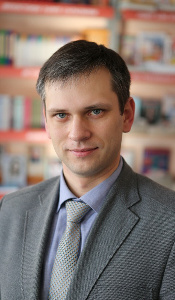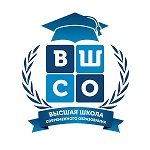Двуплановая модель сотворческого процесса обучения (модифицированный задачный подход)
Аннотация
Обоснование. Для педагогической теории и практики дефицитарны динамические модели педагогических явлений. Сопоставление со шкалой времени учебных задач, совокупность которых описывает процесс обучения, справедливо считать условно динамическим описанием. Соответствующий классический для педагогики задачный подход характеризуется проблематичностью анализа педагогических факторов изменения субъектов образовательной деятельности, которые обусловлены всей историей существования системы «педагог-обучаемый», а не только рассматриваемым периодом процесса обучения.
Цель – разработка условно динамической модели обучения, благоприятствующей его проектированию в ориентации на со-бытийный план отношений педагога и обучаемого.
Методология. В качестве основообразующего метода моделирования выступает задачный подход с его потенциалом анализа динамических характеристик образовательных явлений. Ключевое методологическое значение имеют категории общения, творчества и сотворчества для преодоления ограничений деятельностного подхода.
Результаты. Предлагаются модификация схемы модели задачного подхода введением элемента «жизненный опыт педагога и обучаемого», а также двуплановое представление задач. Один из планов детерминирован только учебными целями, а другой описывает общение в контексте творческой направленности личности. При этом категории общения, творчества и сотворчества используются в контексте потенций человека, которые не опредмечиваются в рассматриваемом периоде времени. Акцентируется внимание на антиномическом противоречии «антропоцентризм-социоцентризм». Разрешение данного противоречия определяется в зависимости от выраженности в образовательном процессе первого плана педагогического воздействия. Отмеченная выраженность проявляется в заинтересованном созидательном познавательном отношении обучаемого к окружающей действительности, иных показателях творческой направленности личности, удовлетворённости, ощущениях комфортности, защищённости.
EDN: OIESNW
Скачивания
Литература
Список литературы
Авдеева, Е. А., & Кочетков, М. В. (2022). Человекоориентированный смысловой дискурс в теории и практике образования. Философия образования, 22(1), 34–41. https://doi.org/10.15372/PHE20220106
Батищев, Г. С. (2015). Избранные произведения (под общ. ред. З. К. Шаукеновой). Алматы: Ин-т философии, политологии и религиоведения КН МОН РК. 880 с.
Богоявленская, Д. Б. (1981). Пути к творчеству. Москва: Знание. 96 с.
Витяев, Е. Е., Гончаров, С. С., & Свириденко, Д. И. (2020). О задачном подходе в искусственном интеллекте и когнитивных науках. Сибирский философский журнал, 18(2), 5–29. https://doi.org/10.25205/2541-7517-2020-18-2-5-29
Витяев, Е. Е., Гончаров, С. С., & Свириденко, Д. И. (2019). О задачном подходе в искусственном интеллекте. Сибирский философский журнал, 17(2), 5–25. https://doi.org/10.25205/2541-7517-2019-17-4-5-25
Востриков, А. А. (1999). Теория, технология и методика продуктивной педагогики в начальной школе. Томск: Изд-во Том. ун-та. 341 с.
Выготский, Л. С. (2001). Лекции по педологии. Ижевск: Издательский дом «Удмуртский университет». 304 с.
Выготский, Л. С. (1968). Психология искусства (под общ. ред. И. В. Иванова). Москва: Искусство. 576 с.
Гальперин, П. Я. (2008). Психология как объективная наука (Избранные психологические труды) (3-е изд., перераб. и доп.). Москва: МПСИ. 480 с.
Инновационные процессы в науке и образовании: монография (под общ. ред. Г. Ю. Гуляева). (2018). Пенза: МЦНС «Наука и Просвещение». 304 с.
Кочетков, М. В. (2008). Профессиональное развитие преподавателя в сотворчестве со студентами в вузе: монография. Красноярск: Изд-во СибЮИ МВД России. 248 с.
Кочетков, М. В. (2017). Тринитарно-синергетические основания развития теории обучения и воспитания. Педагогика и психология образования, (1), 12–20. URL: http://pp-obr.ru/en/archives/pedagogy-and-psychology-of-education-2017-1/
Кочетков, М. В. (2013). Целостное профессиональное саморазвитие преподавателя в сотворческой педагогической деятельности: монография. Красноярск: СибГТУ. 288 с.
Леонтьев, А. Н. (1975). Деятельность. Сознание. Личность. Москва: Политиздат. 304 с.
Нечаев, В. В. (2023). Задачная технология моделирования систем: деятельностный подход. В сборнике: Имитационное моделирование. Теория и практика (с. 155–173). Казань: Изд-во АН РТ. URL: http://simulation.su/uploads/files/default/immod-2023-155-173.pdf
Посталюк, Н. Ю. (1993). Дидактическая система развития творческого стиля деятельности студентов (дис. доктора педагогических наук). Казань. 362 с.
Рейнвальд, Н. И. (1987). Психология личности. Москва: Изд-во Российского университета дружбы народов. 200 с.
Рубинштейн, С. Л. (1958). О мышлении и путях его исследования. Москва: АН СССР. 148 с.
Рубинштейн, С. Л. (1946). Основы общей психологии (2-е изд., доп.). Москва: Учпедгиз. 704 с.
Уман, А. И. (1997). Технологический подход к обучению: Теоретические основы. Москва-Орёл. 205 с.
Хамидулин, В. С. (2020). Модернизация модели проектно-ориентированного обучения в вузе. Высшее образование в России, 29(1), 135–149. https://doi.org/10.31992/0869-3617-2020-29-1-135-149
Gan, Y., & Jie, B. (2022). Research on optimization of student management evaluation system under the background of big data. Wireless Communications and Mobile Computing, 2022, 2917450. https://doi.org/10.1155/2022/2917450
Gilyazova, O. S., Zamoshchansky, I. I., & Zamoshchanskaya, A. N. (2022). Propósitos humanísticos y utilitarios de la educación superior en el contexto del enfoque de competencia: presentación del problema. Apuntes Universitarios, 12(4), 197–219. https://doi.org/10.17162/au.v12i4.1242
Kochetkov, M. V., & Avdeeva, E. A. (2021). Humanitarian reversing higher education in the Russian Federation in light of the transhumanist challenges. Philosophical Forum, 52(2), 1–12. https://doi.org/10.1111/phil.12288
References
Avdeyeva, E. A., & Kochetkov, M. V. (2022). Person-oriented meaningful discourse in the theory and practice of education. Philosophy of Education, 22(1), 34–41. https://doi.org/10.15372/PHE20220106
Batischev, G. S. (2015). Selected works (edited by Z. K. Shauchenova). Almaty: Institute of Philosophy, Political Science and Religious Studies of the Ministry of Education and Science of the Republic of Kazakhstan. 880 p.
Bogoyavlenskaya, D. B. (1981). Paths to creativity. Moscow: Knowledge. 96 p.
Vityaev, E. E., Goncharov, S. S., & Sviridenko, D. I. (2020). On task-based approach in artificial intelligence and cognitive sciences. Siberian Philosophical Journal, 18(2), 5–29. https://doi.org/10.25205/2541-7517-2020-18-2-5-29
Vityaev, E. E., Goncharov, S. S., & Sviridenko, D. I. (2019). On task-based approach in artificial intelligence. Siberian Philosophical Journal, 17(2), 5–25. https://doi.org/10.25205/2541-7517-2019-17-4-5-25
Vostrikov, A. A. (1999). Theory, technology and methodology of productive pedagogy in elementary school. Tomsk: Publishing House of Tomsk University. 341 p.
Vygotsky, L. S. (2001). Lectures on pedology. Izhevsk: Publishing house of Udmurt University. 304 p.
Vygotsky, L. S. (1968). Psychology of art (edited by I. V. Ivanov). Moscow: Art. 576 p.
Galperin, P. Y. (2008). Psychology as objective science: Selected psychological works (3rd edition, revised and expanded). Moscow: MPSI. 480 p.
Innovative Processes in Science and Education: Monograph (edited by G. Yu. Gulyaev). (2018). Penza: MCS NS "Science and Enlightenment". 304 p.
Kochetkov, M. V. (2008). Professional development of teachers in co-creation with students in higher education institutions: Monograph. Krasnoyarsk: Publishing House of Siberian Law Institute of the Ministry of Internal Affairs of Russia. 248 p.
Kochetkov, M. V. (2017). Trinitarno-synergistic foundations of teaching and education theory development. Education and Psychology, (1), 12–20. Available at: http://pp-obr.ru/en/archives/pedagogy-and-psychology-of-education-2017-1/
Kochetkov, M. V. (2013). Integral professional self-development of teacher in creative pedagogical activity: Monograph. Krasnoyarsk: SibGTU. 288 p.
Leontiev, A. N. (1975). Activity. Consciousness. Personality. Moscow: Politizdat. 304 p.
Nechaev, V. V. (2023). Task technology for system modeling: Activity-based approach. In Simulation Modeling: Theory and Practice (pp. 155–173). Kazan: Publishing House of the Academy of Sciences of the Republic of Tatarstan. Available at: http://simulation.su/uploads/files/default/immod-2023-155-173.pdf
Postaluk, N. Yu. (1993). Didactic system for the development of student's creative style of activity (Doctoral dissertation). Kazan. 362 p.
Reinwald, N. I. (1987). Personality psychology. Moscow: Publishing house of Russian People's Friendship University. 200 p.
Rubinstein, S. L. (1958). On thinking and paths of its exploration. Moscow: USSR Academy of Sciences. 148 p.
Rubinstein, S. L. (1946). Foundations of general psychology (2nd edition, extended). Moscow: Uchpedgiz. 704 p.
Uman, A. I. (1997). Technological approach to education: Theoretical foundations. Moscow-Orel. 205 p.
Khamidulin, V. S. (2020). Modernization of project-oriented learning model in university. Higher Education in Russia, 29(1), 135–149. https://doi.org/10.31992/0869-3617-2020-29-1-135-149
Gan, Y., & Jie, B. (2022). Research on optimization of student management evaluation system under the background of big data. Wireless Communications and Mobile Computing, 2022, 2917450. https://doi.org/10.1155/2022/2917450
Gilyazova, O. S., Zamoshchansky, I. I., & Zamoshchanskaya, A. N. (2022). Propósitos humanísticos y utilitarios de la educación superior en el contexto del enfoque de competencia: presentación del problema. Apuntes Universitarios, 12(4), 197–219. https://doi.org/10.17162/au.v12i4.1242
Kochetkov, M. V., & Avdeeva, E. A. (2021). Humanitarian reversing higher education in the Russian Federation in light of the transhumanist challenges. Philosophical Forum, 52(2), 1–12. https://doi.org/10.1111/phil.12288
Copyright (c) 2025 Maksim V. Kochetkov

Это произведение доступно по лицензии Creative Commons «Attribution-NonCommercial-NoDerivatives» («Атрибуция — Некоммерческое использование — Без производных произведений») 4.0 Всемирная.





































